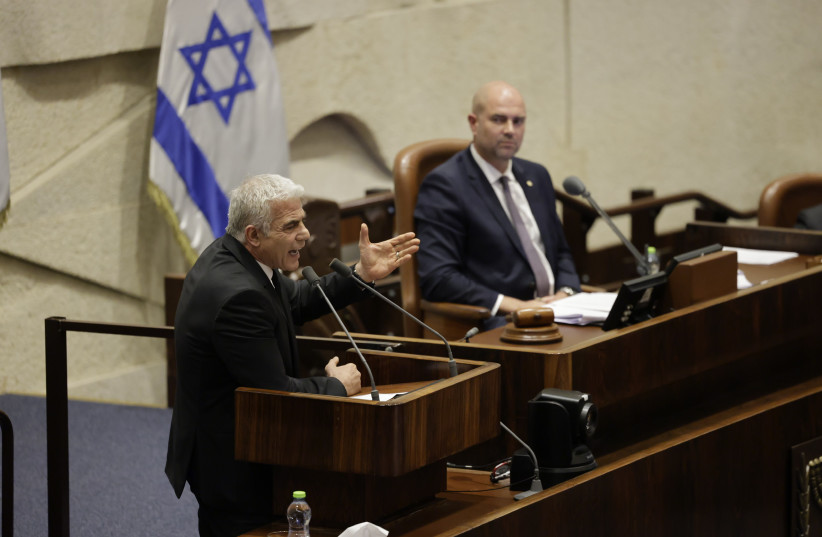Judicial reform protesters were dragged out of the Knesset by security guards after they tried to prevent MKs from entering the plenum on Monday, according to Israeli media.
According to Walla, the protesters tried to block the entrance of the plenum to ministers and Knesset members by laying down or sitting in front of the doors.
"I support and praise the Knesset officer and the Knesset guard who did not let the gang of lawbreakers block the Knesset plenum and removed them quickly, decisively and professionally," said Knesset Chairman Amir Ohana.
"Now they will be handed over to the Israeli Police and the judicial system for further handling, which I hope will be equally resolute. Knesset members who invited the troublemakers should take a moment of reflection; the Knesset will not be like the Ayalon [highway]."
The decision to bar the public from the vote has drawn mixed reactions from lawmakers
Labor MK Efrat Rayten expressed support for the move, claiming that the decision reflected the fear of those opposing the reform to face public scrutiny and criticism.

Yesh Atid MK Meirav Cohen called for the reopening of the public gallery which had been closed for the debate and the vote. In a letter to Ohana, she argued that "access to the plenum is part of the rights of citizens in a democratic country and it must be preserved."
The Knesset later stated that the protestors couldn't have gotten in without a personal invitation from an MK and that they had been invited by Cohen and MK Naor Shiri. The Knesset added that the two MKs would be dealt with in the Ethics Committee.
Meanwhile, inside the Knesset, tensions surrounding the proposed legislation continue to rise. Some members of the opposition wore black t-shirts with Israeli flags on them.
The first reading of the controversial Reasonableness Standard Bill began in the Knesset plenum on Monday evening.
The bill was expected to pass the reading and protests were planned throughout the country on Tuesday as a result.
If it passes, the bill's next stage will be a return to the Knesset Constitution, Law and Justice Committee, which already on Tuesday will begin to prepare it for its second and third reading.
The "reasonableness standard bill" is an amendment to Basic Law: The Judiciary, that would block Israel's courts from applying what is known as the "reasonableness standard" to decisions made by elected officials. The reasonableness standard is a common law doctrine that allows for judicial review against government administrative decisions that are deemed beyond the scope of what a responsible and reasonable authority would undertake.
Opposition leaders Yair Lapid and Benny Gantz have urged a return to negotiations before the vote on the limitation of reasonable doubt if the coalition halts the legislation.
"They want there to be laws for all citizens, but the laws will not apply to them. This is not a limitation of reasonable doubt; it is a limitation of corruption. This day will be engraved in eternal shame in the annals of the Knesset and the State of Israel," Lapid said, adding, "As long as the law has not been approved in the second and third readings, we can return to negotiations at the President's Residence on the condition that they completely halt the legislation."
"I spoke with the President and suggested to him that the Prime Minister, the opposition leader and myself meet again before the vote. We should not wait for the streets to catch fire. However, regarding the limitation of grounds for reasonable doubt, the bill should not be allowed to pass," Gantz stated. "We cannot agree to a single constitutional change because we know that the next day, there will be changes by remote control that will undermine all the balances in democracy. It is not right fundamentally and it is not right for the country. It must be stopped."
Eliav Breuer contributed to this article.
